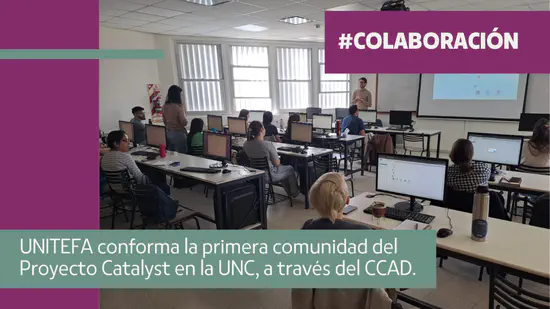We enable open science and open source communities to have global impact.
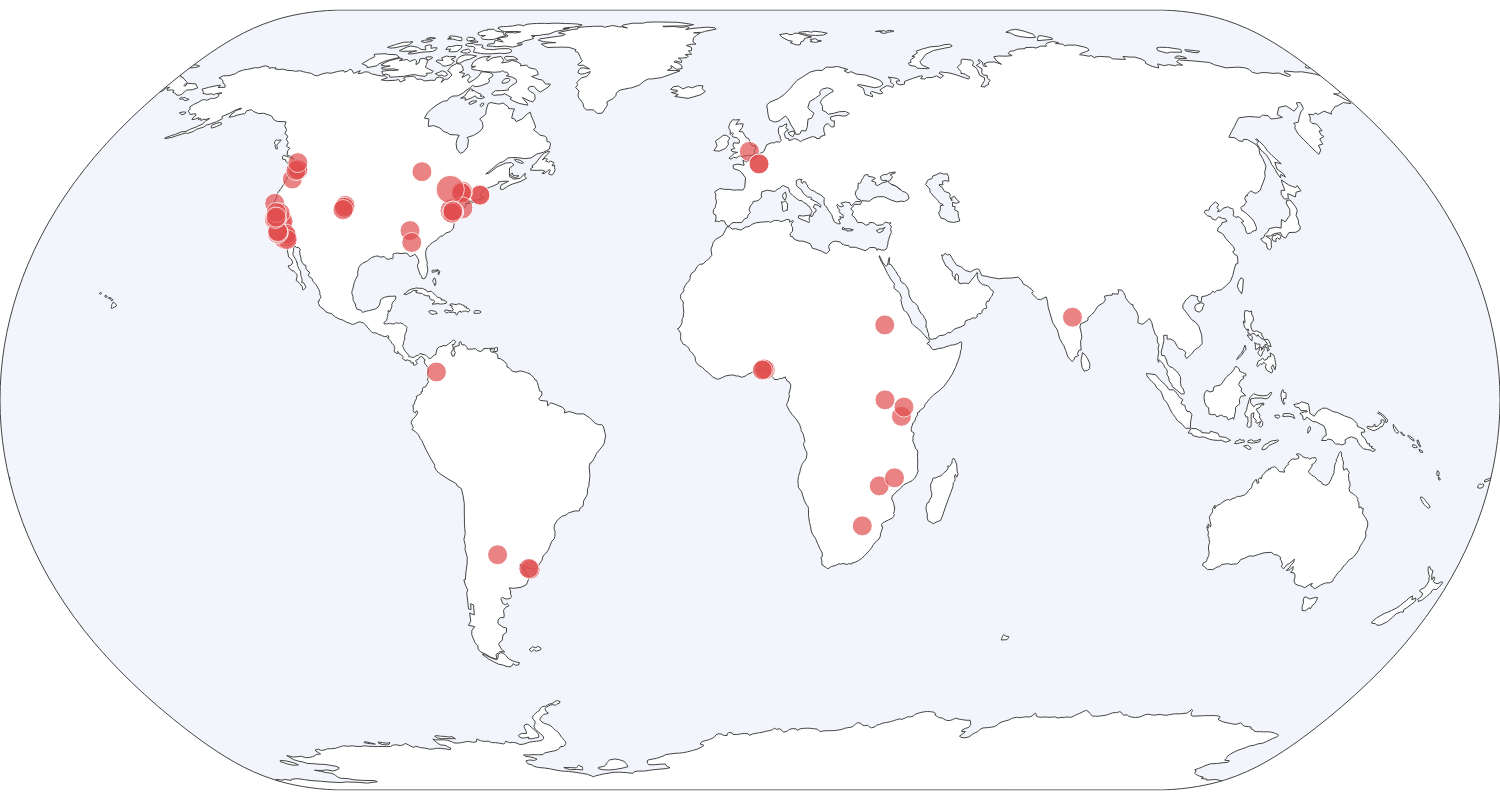
Communities
>90Active users
>6500Countries
>15Upstream PRs
>2000Stories of our impact
We use the 2i2c blog to share all of our impact stories.
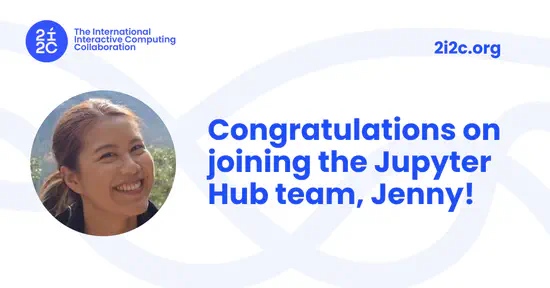
Jenny Wong joins the JupyterHub team
We’re excited to share that Jenny Wong has been invited to join the JupyterHub team as a contributor and maintainer. Jenny’s contributions to nbgitpuller and grafana-dashboards, along with her active participation in project meetings and community planning, earned her this recognition from the JupyterHub community.

Faster reporting of user home directory sizes
Storage quotas help users avoid running out of space unexpectedly and give administrators visibility into capacity planning. However, storage usage can change rapidly, and it’s important to have quick information so that administrators know whether they are close to hitting limits.
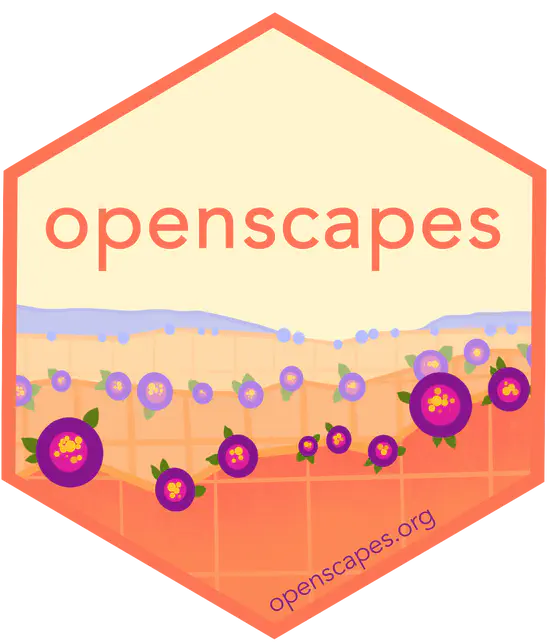
Supporting NASA Openscapes Champions with Cloud Infrastructure
Openscapes ran a NASA Champions program in November, bringing 30 participants together to learn about NASA Earthdata and the earthaccess Python library. We provided JupyterHub infrastructure for hands-on breakout sessions - a good example of using shared infrastructure to facilitate learning and collaboration in remote events.
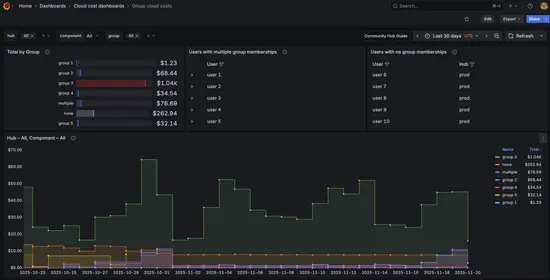
Adding User Group Insights to Cloud Cost Dashboards with Grafana
We are excited to announce that we have extended our cloud cost dashboards to support display costs filtered by user groups using Grafana! This new feature allows administrators to monitor and manage cloud expenses based on user group memberships in JupyterHub.
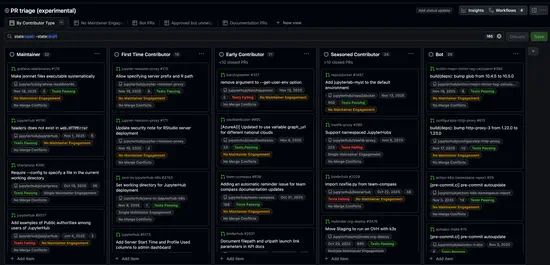
Yuvi on scaling maintainer intuition to facilitate PR review with PR triage boards
Yuvi has a recent post on the Jupyter blog on how his “maintainer intuition” about reviewable pull requests grew into the open-source pr-triage-board-bot, a reusable workflow that keeps GitHub Project boards curated for the JupyterHub, JupyterLab, and GeoJupyter communities.
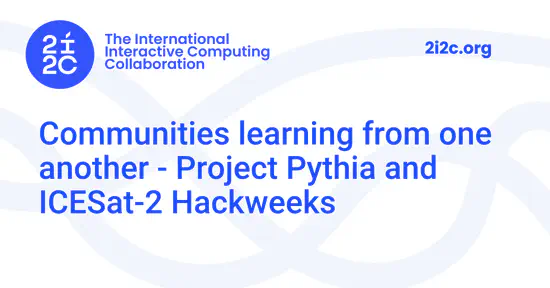
Communities learning from one another - Project Pythia and ICESat-2 Hackweeks
We wanted to share a short vignette about two of our communities learning from one another. At the latest Project Pythia community meeting, Project Pythia met with representatives from ICESat-2 to share learning about notebooks and cookbooks in educational settings.
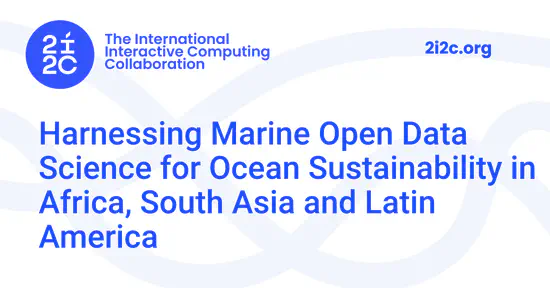
Harnessing Marine Open Data Science for Ocean Sustainability in Africa, South Asia and Latin America
Thank you to Emilio Mayorga for sharing this publication. Several community members, including Paige Martin (Australian Climate Simulator), Eli Holmes (NOAA Fisheries), and Emilio Mayorga (University of Washington) published case studies in Oceanography magazine’s “Vision for Capacity Sharing” issue.
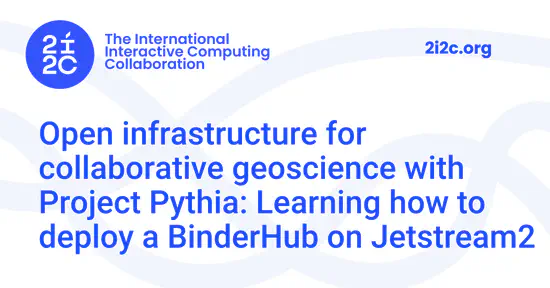
Open infrastructure for collaborative geoscience with Project Pythia: Learning how to deploy a BinderHub on Jetstream2
Project Pythia and the “Jupyter notebook obsolescence” problem # Project Pythia provides educational resources for essential software tools that enable open, reproducible and scalable geoscience, such as the Pangeo stack of packages (Xarray, Dask, Jupyter).
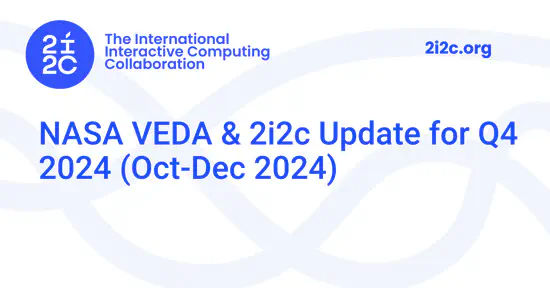
NASA VEDA & 2i2c Update for Q4 2024 (Oct-Dec 2024)
A non-exhaustive list of things 2i2c and Development Seed did with the NASA VEDA project last quarter! Automated backups and alerting with jupyterhub-home-nfs # Tracking Issue jupyterhub-home-nfs is a young project to provide flexible per-user home directory limits on JupyterHub - an important feature for controlling cloud costs.
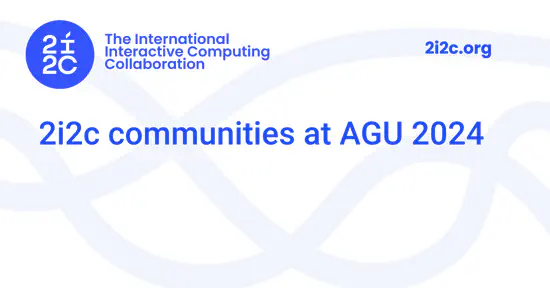
2i2c communities at AGU 2024
We are proud to share that several of 2i2c’s community partners are presenting their work at AGU 2024! In each case, 2i2c’s infrastructure plays a part in helping communities create and share knowledge, and grow their community.
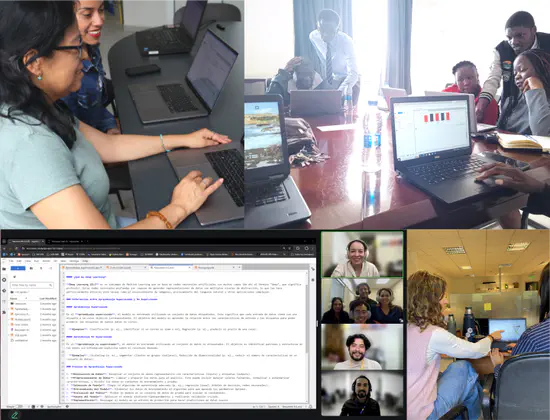
Introducing the Catalyst Project Community Partner Highlights
Cross-posted from the Catalyst Project blog Catalyst Project community partners using accessible cloud infrastructure for open science leadership and training. (clockwise from top-left) NNB-CCG, MUST, CICADA and INER. Photos courtesy of Shirley Alquicira Hernández, Bennett Kankuzi, María Inés Fariello Rico and Yalbi I.
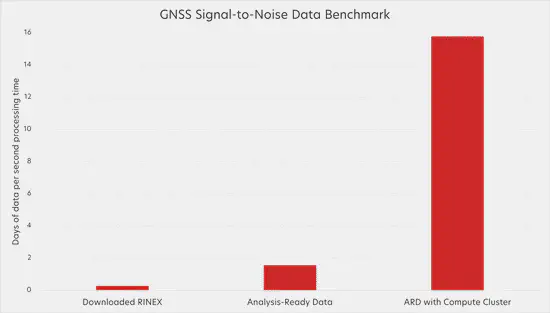
From the GeoLab team - Pancakes are the future of geophysical data processing
Our partner EarthScope published a blog post about their cloud stack which includes heavy mention of 2i2c’s infrastructure model. Check it out!
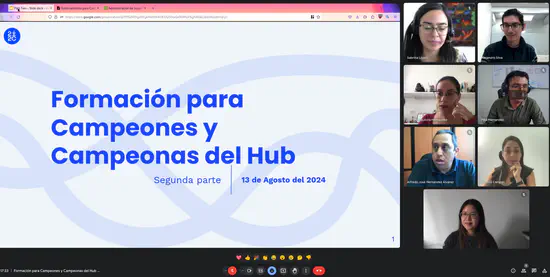
Hub Champion Training Reflections (English)
We’ve developed and are now offering a Communtiy Hub Champion training, see this blog post from the Catalyst Project for more details. Acknowledgements # Thanks to the Catalyst Project for this work.
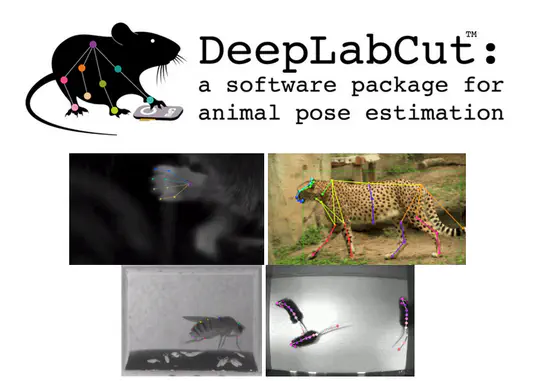
MyST Mini-Hackathon with the DeepLabCut Team
The DeepLabCut Team # Animal pose estimation using deep neural networks. Courtesy of the DeepLabCut Jupyter Book The DeepLabCut team is a group of researchers and developers who are working on open source tools for analyzing animal pose estimation by training deep neural networks on videos.
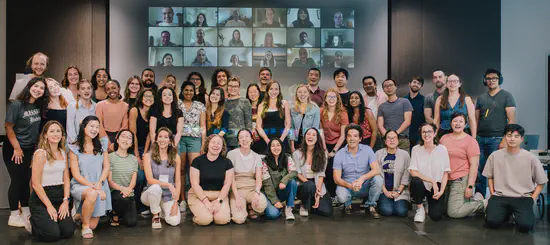
NeuroHackademy Summer School Reflections
Thank you to Ariel Rokem and Noah Benson for guest writing this blog post! Group photo from NeuroHackademy 2024 What is NeuroHackademy? # Part summer school, part free-wheeling hackathon, all focused on the use of data science methods in neuroscience, NeuroHackademy is an event that was recently hosted by the University of Washington eScience Institute in Seattle, WA, USA.

Keeping PACE with GPU enabled compute to detect global cloud cover using satellite data
(left, b&w) Model inputs and (right, color) model outputs of a simple multi-layer perceptron for detecting cloud cover. PACE is the NASA Plankton, Aerosol, Cloud, ocean Ecosystem mission that focuses on understanding ocean health and its impact on the atmosphere.
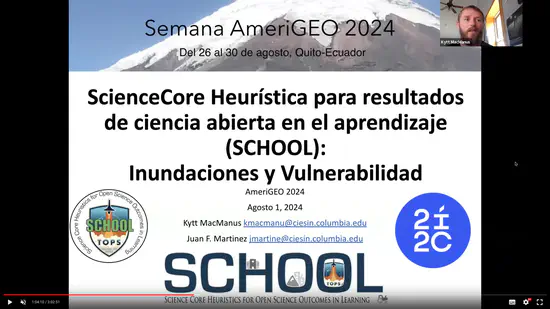
Ephemeral Interactive Computing for the AmeriGEO Workshop
AmeriGEO provides a framework for cooperation in the Americas for the use of Earth data to benefit science and society with data driven decision-making. As part of a virtual workshop held on 1st August 2024, 2i2c provided an interactive computing environment to support the delivery of a NASA TOPST water module.
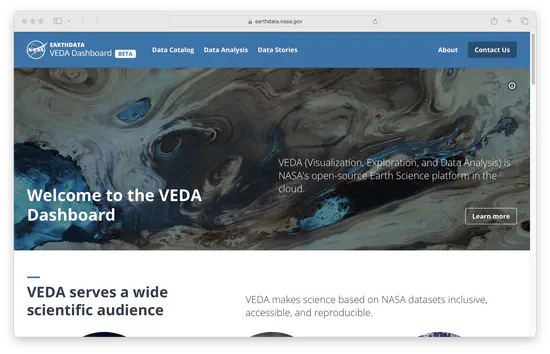
Collaborating with Development Seed to deliver cyberinfrastructure for NASA VEDA
Thank you to Sajjad Anwar and Sanjay Bhangar for contributing to this post. The VEDA dashboard The 2i2c team are proud to continue our strong working collaboration with Development Seed, following our previous work on launching the US GHG center (also see the Development Seed blog post).

Openscapes Host a Surface Biology and Geology Workshop with Shared Password Feature
Thanks to Brianna Lind, Julia Lowndes and Andy Teucher for contributing to this blog post! Surface Biology and Geology: VITALS Workshop Openscapes is a value-based initiative that supports kinder, better science based on open source community.
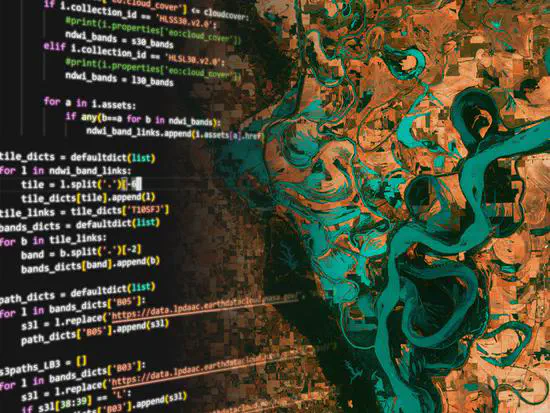
Determining Climate Risks with NASA Earthdata Cloud at Scipy 2024
Determining Climate Risks with NASA Earthdata Cloud is a ScienceCore curriculum module that comprises part of NASA’s Open Science and Transform to Open Science (TOPS) initiatives. The aim of this module is to deliver a hands-on experience with “data-proximate computing” in the cloud with NASA Earthdata products with content co-developed with MetaDocencia.
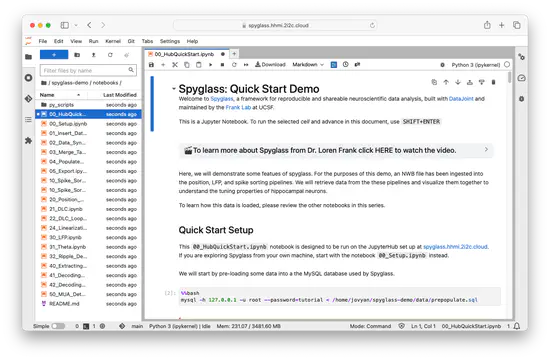
Enabling neuroscience in the cloud with HHMI Spyglass and MySQL on JupyterHub
The HHMI Spyglass tutorial Spyglass # Spyglass is a framework for reproducible and shareable neuroscience research produced by Loren Frank’s lab at the University of California, San Francisco. Check out our blog post about the release of their preprint to read more about the methods.
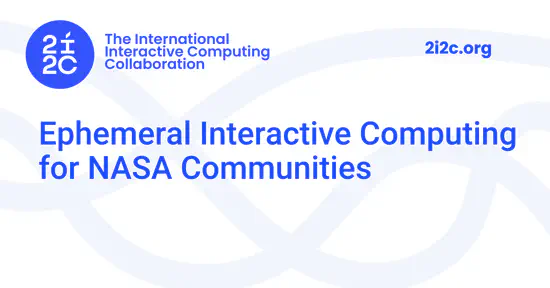
Ephemeral Interactive Computing for NASA Communities
We are pleased to announce that we have deployed two ephemeral hubs for NASA communities! What did we do? # As part of the deliverables for our NASA High Priority Open-Source Science (HPOSS) award, we deployed two new ephemeral hubs:

Neurohackademy Summer School in Neuroimaging and Data Science 2024
Neurohackademy Summer School 2i2c are pleased to support the Neurohackademy Summer School in neuroimaging and data science again! Following the success of our collaboration in previous years (see the event page for 2023), this year’s course will be held July 29th – August 10th, 2024 and will be hosted by the University of Washington eScience Institute.
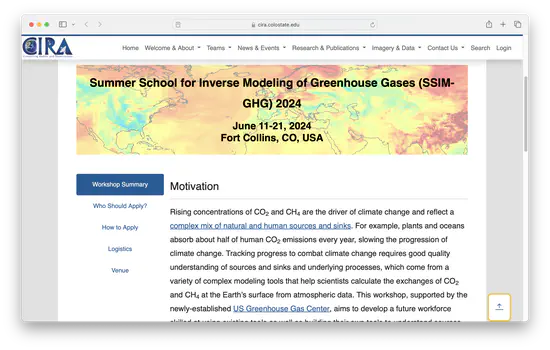
US Greenhouse Gas Center supports summer school at CIRA
Summer school for inverse modeling of greenhouse gases 2024 The Cooperative Institute for Research in the Atmosphere ( CIRA) is an interdisciplinary cooperation between NOAA research scientists and Colorado State University.
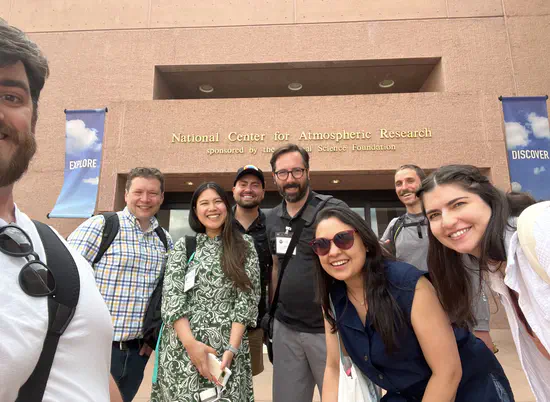
Hacking the Project Pythia Cook-off with MyST Markdown
Photo courtesy of Dr Debanjana Das What is Project Pythia? # Project Pythia is the education working group for Pangeo, a community platform for Big Data geoscience in which 2i2c operates a cloud hub.
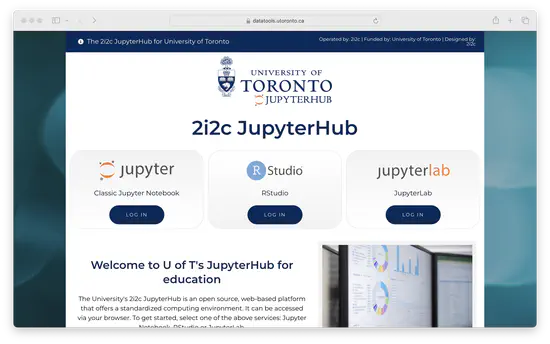
Low storage alerting for the UToronto cluster
The UToronto hub landing page 2i2c has operated The University of Toronto hub since 2021 and this hub supports over 6000 educators and learners in a day! With a community of this size, file storage can quickly grow out of control and cause issues.
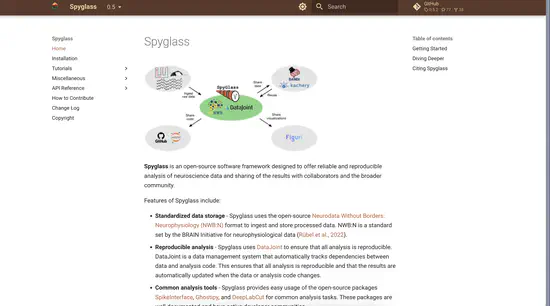
Howard Hughes Medical Institute publishes preprint on Spyglass, a framework for reproducible and shareable neuroscience research
Spyglass landing page Spyglass is a framework for reproducible and shareable neuroscience research produced by Loren Frank’s lab at the University of California, San Francisco. They recently released a preprint about their toolbox, and are using a 2i2c hub to provide accessible interactive cloud environments that demonstrate its functionality and helps researchers get started.
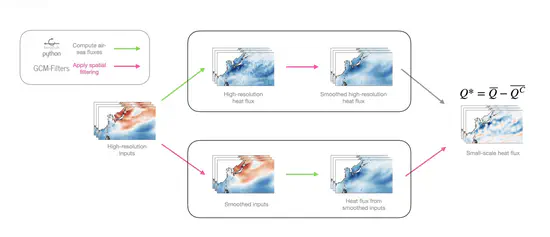
Researchers at LEAP-Pangeo investigate overlooked sub-grid air-sea heat flux in climate models
Figure from the preprint showing large and small scale air-sea fluxes are separated. By Julius Busecke et al., licensed under CC BY 4.0 Julius Busecke et al. of the LEAP-Pangeo1 hub, have recently published a preprint2 that investigates “The Overlooked Sub-Grid Air-Sea Flux in Climate Models” using 2i2c infrastructure.
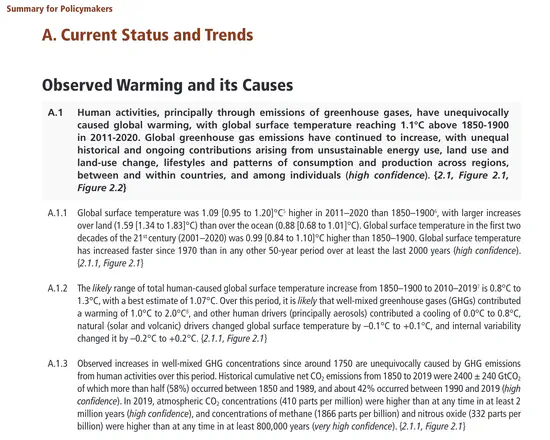
Digital public goods for Earth system management: U.S. Greenhouse Gas Center launches
Abstract The International Interactive Computing Collaboration ( 2i2c.org), working with NASA VEDA, Development Seed and other partners, operates an interactive computing platform for The U.S. Greenhouse Gas Center. The U.
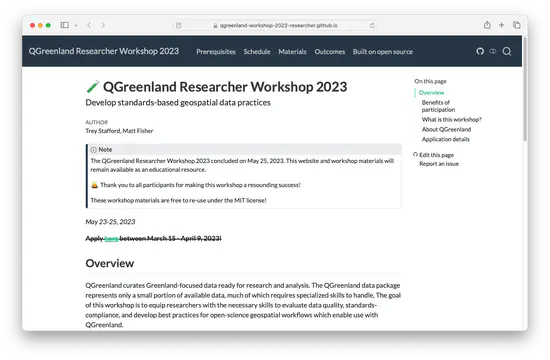
A QGIS desktop in the cloud with JupyterHub
The QGreenland Researcher Workshop JupyterHub is a versatile platform that can serve a desktop with Geospatial Information Systems (GIS) software in the cloud. This was demonstrated by the QGreenland Researcher Workshop that was hosted by the NASA CryoCloud hub.
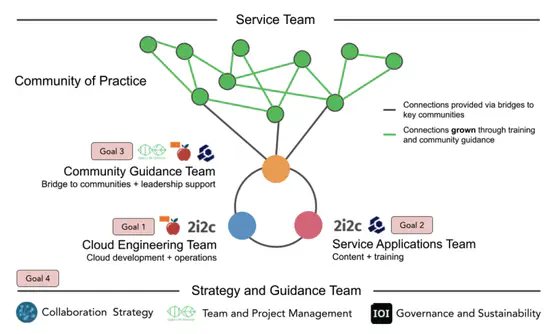
New project: Open science cloud infrastructure and training for communities in Latin America and Africa
We are excited to announce that the team and proposal described in this blog post has been awarded funding by the Chan Zuckerberg Initiative! We informally call this project The Catalyst Project.
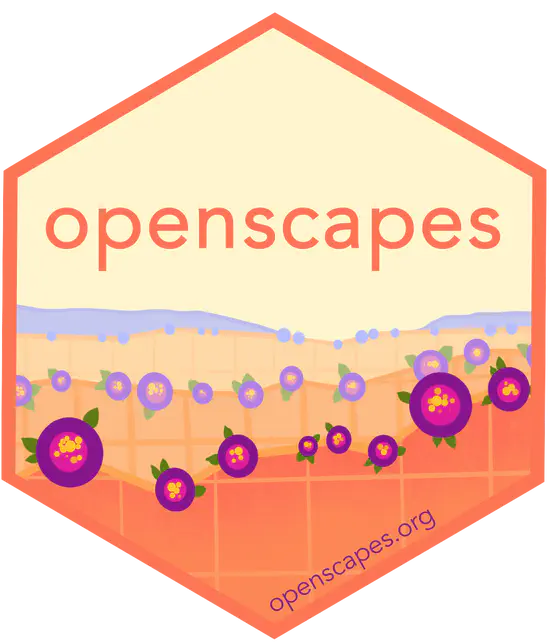
The why, what, and how of our NASA Openscapes cloud infrastructure: 2i2c JupyterHub and corn environment
We recently shared a demo of our infrastructure stack with the OpenScapes community. Check out the blog post about it here.
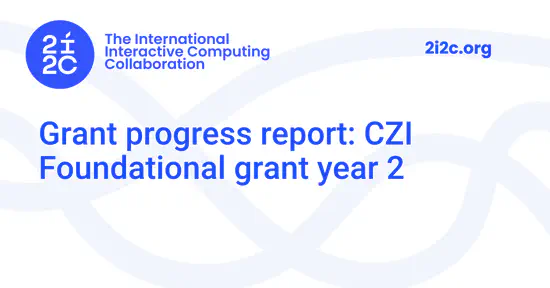
Grant progress report: CZI Foundational grant year 2
We recently completed a progress report for Year 2 of our primary CZI funding grant. This funding covers some core operations of 2i2c as well as engineering capacity to run our cloud infrastructure for JupyterHubs.
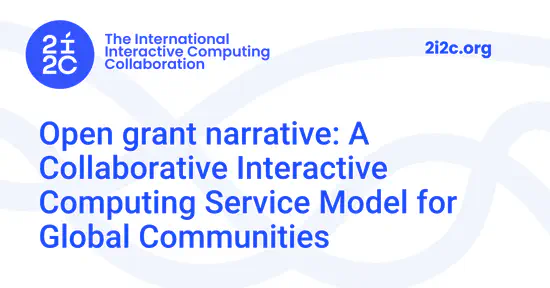
Open grant narrative: A Collaborative Interactive Computing Service Model for Global Communities
We recently submitted a grant to Chan Zuckerberg Initiative and wish to share some details about it as well as the grant narrative for others to read and re-use. Go to Zenodo record Read on for a quick overview of the proposal.
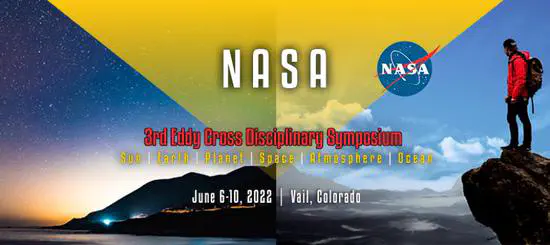
Reflections on the Jack Eddy Symposium
Reflections on the Jack Eddy Symposium # 2i2c supported and participated in the 3rd Eddy Cross Disciplinary Symposium held recently in Vail Colorado. The event was hosted by the Cooperative Programs for the Advancement of Earth System Science ( CPAESS) team at the University Corporation for Atmospheric Research (UCAR) with support from NASA.

Pangeo Cloud goes live on 2i2c!
2i2c are pleased to announce that the first Pangeo JupyterHub is now live on 2i2c-operated infrastructure! 🎉
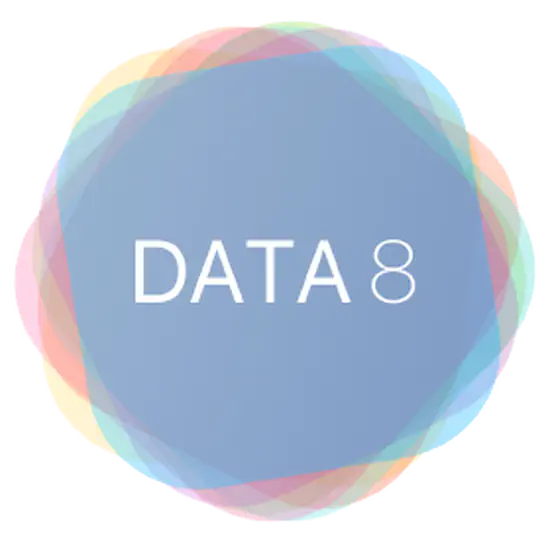
2i2c partners with UC Berkeley and CloudBank to provide data science education hubs for community colleges in California
Data8. MIT licensed. Data8 began as a large introductory data science class at UC Berkeley. It uses a Jupyter Book for all course materials, and uses JupyterHub magic links to distribute course content from the textbook.

TIL: How to do XYZ thing for Y outcome
One or two sentences setting context about a common problem. One to many sections describing something we’ve tried and what we’ve learned in solving that problem. Embed any images, videos, or youtube videos that are relevant.

